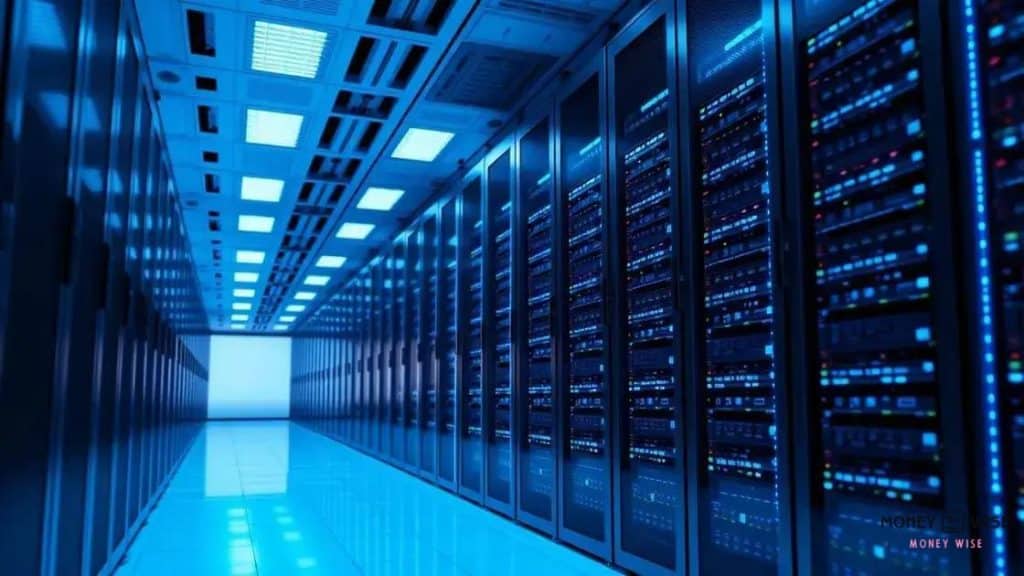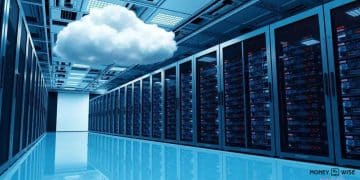Microsoft AI data center expansion: what’s happening?

The expansion of Microsoft AI data centers enhances operational efficiency, creates jobs, strengthens local economies, and drives advancements in cloud computing technology.
Microsoft AI data center expansion is a significant development in the tech landscape, reshaping how businesses harness data. Have you considered how this could influence your digital experience? This article delves into the expansion’s implications and innovations.
Overview of Microsoft AI data centers
In recent years, Microsoft has made significant strides in the expansion of its AI data centers. These centers play a crucial role in processing vast amounts of data and delivering cloud services. By understanding their structure and capabilities, we can appreciate their influence on technology.
Structure of Microsoft AI Data Centers
The layout of these data centers is designed for efficiency. State-of-the-art technology ensures that operations run smoothly. These facilities are equipped with energy-efficient servers that minimize environmental impact. Additionally, they prioritize security features to protect sensitive information.
- Energy-efficient server architecture
- Advanced cooling systems
- Robust data security protocols
- Scalable cloud solutions
Microsoft relies on a global network of AI data centers.
Global Network
This network allows Microsoft to offer services worldwide. The location of these data centers is intentional. By placing them in key regions, they reduce latency and improve service delivery. With data centers in North America, Europe, and Asia, users experience minimal delays when accessing resources.
Security measures in these centers are top-notch. They include multiple layers of protection to keep data safe. Furthermore, Microsoft constantly updates its technology to counteract emerging threats. This commitment to security builds trust with businesses and individuals alike.
Key benefits of data center expansion

The expansion of data centers brings numerous advantages that impact businesses and consumers alike. As technology evolves, these centers enhance efficiency and performance. Understanding these benefits is essential for organizations looking to leverage modern resources.
Enhanced Performance
With more space and advanced technology, expanded data centers improve performance significantly. They allow for faster processing of information, reducing wait times for users. This means businesses can operate more smoothly and clients enjoy a better experience.
- Lower latency for faster data retrieval
- Increased server capacity for handling more requests
- Improved overall system reliability
- Faster deployment of new applications
Moreover, the availability of additional resources leads to greater scalability. Organizations can easily adjust their operations based on demand. This adaptability is pivotal in today’s fast-paced digital world.
Cost Efficiency
Expanding data centers also offers a chance for cost savings. By optimizing operations and improving energy efficiency, businesses can reduce their operational expenses. Cutting down on energy consumption not only helps the environment but also lowers electricity bills significantly.
As companies scale their infrastructure, they can consolidate resources. This means fewer data centers are needed, leading to lower maintenance and management costs. Utilizing advanced technologies in these expansions ensures that companies receive excellent value for their investment.
Technological advancements in AI infrastructure
Technological advancements in AI infrastructure play a vital role in shaping modern computing. As these technologies develop, they enhance how data is processed and managed, leading to smarter solutions for businesses and individuals.
Innovative Hardware
One major area of advancement is in hardware. New generations of servers are designed specifically for AI tasks. These machines have powerful GPUs that allow for faster computations. This means AI models can be trained more quickly and efficiently.
- Improved processing speeds
- Greater parallel processing capabilities
- Enhanced memory for large datasets
- Energy-efficient designs to reduce costs
Another critical advancement is in networking technology. High-speed connections enable data centers to communicate faster. This connectivity is essential for real-time data processing and machine learning applications.
Enhanced Software Solutions
On the software side, organizations are seeing improvements as well. Many AI frameworks and tools are becoming more accessible. These advancements allow developers to build and deploy AI solutions more efficiently. Open-source libraries provide robust resources for experimentation.
Additionally, the integration of cloud computing simplifies the management of AI infrastructure. Businesses can utilize remote resources without needing extensive on-site setups. This flexibility fosters innovation and reduces overhead costs.
Impact on local economies

The expansion of data centers significantly influences local economies. As these facilities grow, they create jobs and stimulate economic activity in surrounding areas. Understanding this impact helps communities and policymakers plan for future developments.
Job Creation
One of the most direct effects of data center expansion is job creation. New facilities require a workforce for construction, maintenance, and operations. This translates to thousands of jobs for local residents. Moreover, many positions offer competitive wages and benefits.
- Construction jobs during facility building
- Technical positions for data management
- Support roles in IT and facility maintenance
- Long-term employment for skilled workers
In addition to direct employment, data centers support local businesses. The influx of well-paying jobs can lead to increased spending in the community. Local restaurants, shops, and service providers often see higher demand.
Infrastructure Development
Moreover, the presence of data centers encourages infrastructure improvements. Local governments often invest in roads, utilities, and internet connectivity to accommodate these facilities. This development benefits residents by enhancing overall quality of life.
As infrastructure improves, it can attract additional businesses to the area. Better roads and reliable internet access are appealing to organizations looking to establish or expand operations. This creates a cycle of growth that benefits the entire community.
Future trends in cloud computing
The future of cloud computing is filled with exciting trends that will shape how businesses operate. As technology evolves, organizations must stay ahead of these changes to remain competitive and efficient.
Increased Adoption of AI
One key trend is the increased adoption of artificial intelligence in cloud services. AI will enhance cloud functionalities, allowing for smarter data processing and analysis. Companies will leverage AI to improve customer experiences, optimize operational workflows, and provide predictive analytics.
- AI-driven automation for routine tasks
- Smart data insights for better decision-making
- Enhanced security protocols using AI algorithms
- Personalized user experiences through AI
This integration will streamline processes and enable real-time responses to changing market conditions.
Multi-Cloud Strategies
Another significant trend is the rise of multi-cloud strategies. Businesses will increasingly utilize services from multiple cloud providers to increase flexibility and resilience. This approach allows companies to avoid vendor lock-in and maximize efficiency by selecting the best tools and features from each provider.
Multi-cloud setups also improve redundancy and disaster recovery, ensuring business continuity. As this trend grows, companies will need to invest in tools that manage and orchestrate resources across various platforms.
FAQ – Frequently Asked Questions about Microsoft AI Data Center Expansion
What are the main benefits of data center expansion?
Data center expansion creates job opportunities, boosts local economies, and enhances the efficiency of cloud services through advanced technologies.
How does AI improve data center operations?
AI enhances data processing, automates routine tasks, and provides predictive analytics, leading to faster and more efficient operations.
What impact do data centers have on local communities?
Data centers stimulate economic growth by creating jobs, improving infrastructure, and increasing local business activity through employee spending.
Why are multi-cloud strategies becoming popular?
Multi-cloud strategies offer flexibility, reduce vendor lock-in, and improve resilience, allowing companies to use the best services from multiple providers.
What future trends should businesses watch in cloud computing?
Future trends include increased integration of AI, greater reliance on multi-cloud strategies, and advancements in data security and efficiency.





